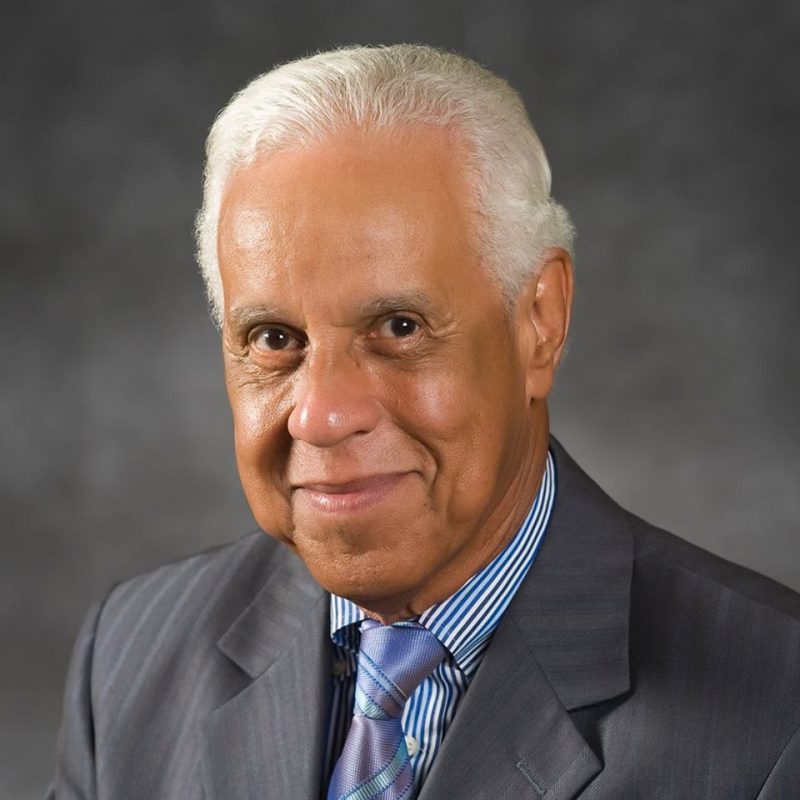The miscarriage of justice continues to be pervasive and promulgated by the very institutions that are charged to protect, educate, and enforce equality for all people. I am sharing my personal experience relative to Title IX and the need for due process protections, published in the Roanoke Times, that conveys how crucial it is to demand what is right and to criticize what is wrong.
Stay tuned.
Secretary DeVos Right to Restore Due Process on Campus
By L. Douglas Wilder
Wilder is the former governor of Virginia. He currently serves as a distinguished professor at Virginia Commonwealth University’s Wilder School of Government and Public Affairs.
As colleges and universities across the country plan what higher education will look like on the post-pandemic campus, the Department of Education has taken a major step toward improving one area with a longtime culture of injustice.
Education Secretary Betsy DeVos recently strengthened Title IX protections for the survivors of sexual misconduct on campus, while instituting due process in campus proceedings. For the first time ever, the Education Department’s Title IX regulations define sexual harassment, including sexual assault, as “unlawful sex discrimination.” Codifying prohibitions against sexual harassment requires schools to take meaningful action to support accusers and the accused, without sacrificing the safeguards to ensure fair and transparent proceedings.
Of course, our top priority is clamping down on sexual misconduct. Every year, thousands of students are exposed to unwanted sexual activity on campus, most of them being women. This ruins their college experience and can leave them traumatized long after they graduate.
Sexual misconduct is simply unacceptable. Campus officials must do their best to hold the perpetrators accountable and keep our students safe.
What they cannot do, however, is ignore due process — the bedrock of our judicial system. Too often, those accused of sexual misconduct are publicly vilified before their side of the story is ever heard. Too often, the accused are presumed to be guilty before the facts of their case are even known. This is just as unacceptable.
In America, people are always innocent until they’re proven guilty. “Guilty until proven innocent” is a perversion of our judicial system. The system relies on due process to keep both the accusers and the accused on a level playing field. Only then can we assess the validity of the allegations at hand and draw the right conclusions from them.
Unfortunately, I’ve experienced the presumption of guilt firsthand. For over a year now, I have undergone an unimaginable nightmare at Virginia Commonwealth University (VCU), where I lecture at the Wilder School of Government and Public Affairs. In December 2018, a complaint was filed against me by a 20-year-old student, alleging that I had touched her leg and kissed her without consent. The complainant was directed to file criminal charges with the Richmond Police Department. However, the charge was determined to be “unfounded.”
Nevertheless, VCU’s Title IX office carried on behind my back. Although the office notified the complainant that her complaint would be investigated thoroughly within two days of receiving it, I wasn’t notified of anything relative to any complaint until almost two months later.
At the end of January 2019, I finally received a “Notice of Investigation” letter, which detailed four specific allegations: Non-consensual Sexual Contact, Sexual Exploitation, Sex-Gender-based Discrimination, and Retaliation. The matter was assigned to an external investigator by Laura Walsh Rugless, the Executive Director of Equity Access Services and Title IX Coordinator, who has subsequently resigned her position at VCU.
Weeks later, I was notified that the initial external investigator was removed and replaced by Jody Shipper, co-founder and managing director of Grand River Solutions. This is the same Jody Shipper who conducted a Title IX investigation at the University of Southern California, an investigation whose determination was overturned by the California Court of Appeals, Second Appellate District Court in December 2018.
Why? Because the accused was denied a fair and transparent Title IX proceeding. Yet VCU recruited Shipper anyway, and she subsequently concluded that the “unfounded” charge against me was true (while determining the three other allegations were not true).
To the hearing panel’s credit, they rejected Shipper’s findings, ruling that I was not in fact responsible for non-consensual sexual contact. But it was too late: Shipper’s reckless pursuit of guilt — emboldened by VCU’s Title IX office — was the most unsettling experience of my life. Becoming the first elected African American governor in U.S. history was a walk in the park compared to this ordeal. And it has permanently damaged my reputation, regardless of my innocence.
Hopefully, campus officials can learn from the mistakes of the past. I came to learn that VCU was already under a voluntary resolution agreement signed by President Michael Rao in 2014, due to issues with its mishandling of previous Title IX cases. It is imperative that VCU and all institutions of higher education ensure fairness for both parties in situations such as these.
I hope that my experience will inform future Title IX proceedings, as we continue to clamp down on sexual misconduct. I pray that we can protect accusers and the accused by upholding due process.
Fortunately, the Department of Education is doing its part to guarantee due process for all parties, while recognizing the tragedy of sexual misconduct on campus. Following Secretary DeVos’ lead, administrators, faculty, staff, and students can rest assured that their voices will be heard.
With due process, we can all rest assured that the presumption of innocence will prevail—followed by the truth.








